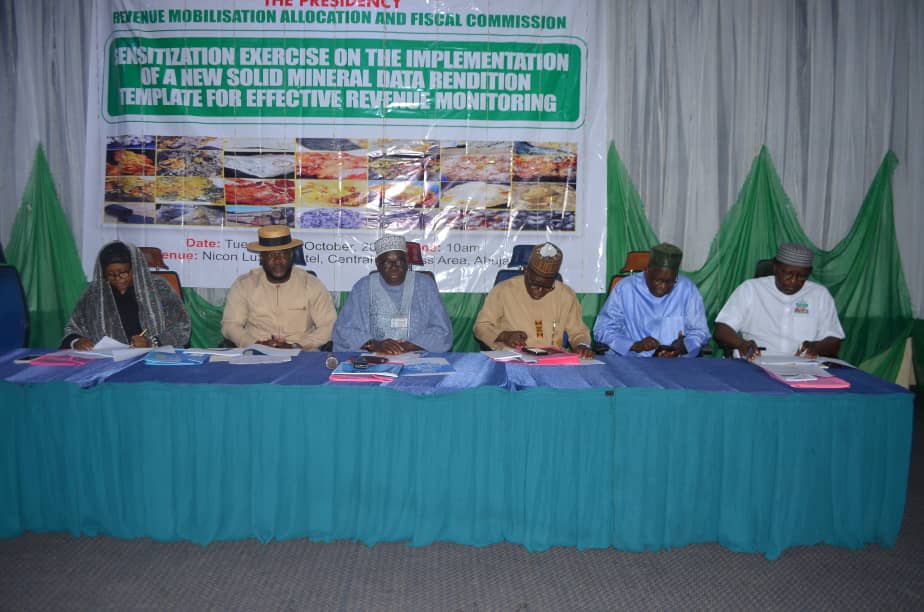Business
FG Targets Improved Wheat Production With Subsidies Agricultural Growth Scheme

Joel Ajayi
The Federal Government has launched a groundbreaking initiative to enhance Nigeria’s wheat production, aligning with its efforts to strengthen food security and reduce dependence on imported wheat
.
The Honourable Minister of Finance and Coordinating Minister of the Economy, Mr Wale Edun, who stated this in his office in Abuja, disclosed that the Ministry is thus advancing Nigeria’s wheat production through the National Agricultural Growth Scheme and Agro Pocket (NAGS-AP).
The initiative, he said, spans 16 wheat-producing States, aiming to enhance agricultural productivity and boost economic growth.
National Project Coordinator, Ishaku Buba, while briefing the Minister, informed that the scheme is targeting 280,000 smallholder farmers and a select group of medium-scale farmers in selected clusters.
Participants, he said, are required to contribute resources to cover inputs for one hectare of irrigated land, noting that fertilizer packages vary, with farmers in most States receiving 50kg of Urea and 100kg of NPK fertilizer, while farmers in Jigawa State will receive increased inputs due to its soil nutrient demands and a commitment of the State Government to boost wheat production.
He added that the project provides significant financial support, including 25% subsidies on certified wheat seeds and 50% subsidies on fertilizers, thus reducing costs for participating farmers.
To facilitate distribution, 409 redemption centres have been established, with 281 already operational, reaching 68,389 farmers (24.42% of the target).The program is expected to conclude its input distribution phase later this month, aligning with the wheat planting calendar.
Enhanced security measures have also been enacted, with personnel drawn from the Police, DSS, and NSCDC in place at redemption centres to ensure smooth operations.
In his closing remarks, HM Edun commended the project team for their efforts, emphasizing the scheme’s potential to strengthen food security, support rural economies, and reduce Nigeria’s dependence on imported wheat.
With this innovative subsidy scheme, Nigeria is poised to make significant strides in wheat production, ultimately contributing to a more food-secure and prosperous nation.
Business
RMAFC Unveils New Data Rendition Template For Solid Minerals

Joel Ajayi
The Revenue Mobilization Allocation and Fiscal Commission, in conjunction with the Federal Ministry of Solid Minerals Development, has introduced a new solid minerals data rendition template for effective monitoring of revenue from the solid mineral sector in Nigeria.
Speaking during a one day sensitisation exercise on the implementation of the new template on Tuesday in Abuja, Chairman of the Commission Dr. Muhammed Bello Shehu OFR who was represented by the Chairman of the Solid Minerals Monitoring Committee of RMAFC at the occassion reiterated the Commission’s commitment to promoting the diversification of the Nation’s revenue sources in line with the Renewed Hope Agenda of President Bola Ahmed Tinubu GCFR, which aims to harness the country’s revenue potentials from other key sectors of the economy such as solid minerals, tourism, manufacturing and the blue economy.
The Chairman who underscored the importance of the new template said, “The implementation of the new data rendition template could not have come at a better time, given the current economic realities the country is facing.
The need to diversify our national revenue sources cannot be overemphasized, especially considering the nation’s over-dependence on hydrocarbon revenues, which are often affected by fluctuations in the international oil market, as well as challenges such as crude oil theft and vandalism.”
Dr. Shehu disclosed that, in line with its constitutional mandate as enshrined in the 1999 Constitution of the Federal Republic of Nigeria (as amended), the Commission had conducted two nationwide solid mineral revenue monitoring exercises in 2016 and 2022 aimed at boosting revenue generation from the mining sector. He added that the exercises had considerably improved the level of revenue generation from the sector.
He, however, lamented that despite the growing scale of activities in the country’s mining sector, only a negligible amount was being remitted to the Federation Account. This, according to him, was largely due to inadequate and ineffective monitoring of mining operations.
He therefore emphasized his determination to make sure that the Commission under his leadership work assiduously to ensure that all revenues due to the Federation Account from the mining sector were fully and promptly remitted into the Federation Account.
The new data rendition template, he explained, was designed to capture and manage relevant information such as the quantity of minerals produced, details of producing companies and their locations, as well as licenses, fees, and permits paid by mining companies.
The Chairman assured that the proper utilization of this data rendition template will enhance transparency and accountability by ensuring that mining operations and revenues are effectively tracked and managed.
In his remarks, Hon. Ibrahim Shettima, Chairman, Solid Minerals Monitoring Committee and Federal Commissioner representing Niger State in the Commission stated that the event was organized to bridge identified gaps to engender the timely and accurate rendition of revenue data on a state-by-state basis by relevant government agencies and operators in the solid minerals sector.
Speaking further, Hon. Shettima explained that the exercise aimed to establish an independent, reliable data platform for the Commission and serve as a credible source for comparison and policy decision-making.
Other stakeholders such as Director Mining Inspectorate, Federal Ministry of Solid Minerals,Engineer Imam Ganiu, D.G Mining Cadestre Office, Engr. Obadiah Nkom and the President of the Miners Association of Nigeria Mr. Segun Ayanleke acknowledged that Nigeria has the potential to be a key player in the global mining industry if the sector is efficiently and effectively managed. They, therefore, called for proper implementation of policies around the sector so as to achieve optimal results. They also advocate for stronger synergy between government and private stakeholders in the sector.
The high point of the event was the presentation of papers by resource persons on the general overview of the global and nigerian mining sectors, assessment of revenue contribution using data rendition, overview of the functions and activities of the Federal Ministry of Solid Minerals Development (FMSMD) as a major economic driver and the functions and activities of the Mining Cadastre Office (MCO).
Papers were also presented on the role and experience of the Miners Association of Nigeria and the new data rendition template as a requirement for accurate and Timely Data Reporting in the Solid Minerals Sector.
-

 Featured6 years ago
Featured6 years agoLampard Names New Chelsea Manager
-

 Featured5 years ago
Featured5 years agoFG To Extends Lockdown In FCT, Lagos Ogun states For 7days
-

 Featured6 years ago
Featured6 years agoChildren Custody: Court Adjourns Mike Ezuruonye, Wife’s Case To April 7
-

 Featured6 years ago
Featured6 years agoNYSC Dismisses Report Of DG’s Plan To Islamize Benue Orientation Camp
-

 Featured4 years ago
Featured4 years agoTransfer Saga: How Mikel Obi Refused to compensate me After I Linked Him Worth $4m Deal In Kuwait SC – Okafor
-
Sports3 years ago
TINUBU LAMBAST DELE MOMODU
-

 News9 months ago
News9 months agoZulu to Super Eagles B team, President Tinubu is happy with you
-
Featured6 years ago
Board urges FG to establish one-stop rehabilitation centres in 6 geopolitical zones
